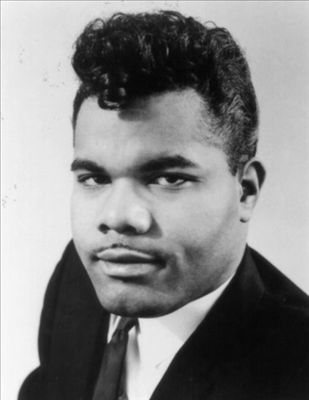
 As regular readers of this column know, there is usually a photo of the featured record over there on the left. The fact that I couldn’t find a decent photo of this week’s record is telling. While Walter Jackson was one of the sweetest soul singers that Chicago has ever known, he remains relatively obscure to casual soul music fans.
As regular readers of this column know, there is usually a photo of the featured record over there on the left. The fact that I couldn’t find a decent photo of this week’s record is telling. While Walter Jackson was one of the sweetest soul singers that Chicago has ever known, he remains relatively obscure to casual soul music fans.
Jackson was born in Pensacola, FL, and raised in Detroit. As a child he contracted polio, and he was forced to use crutches for the remainder of his life. He began his career by singing in Detroit nightclubs. He auditioned for Motown, but the label passed and he was back to square one.
It was in one of those clubs that Carl Davis saw Jackson. Davis was an A&R man for Columbia Records. Davis liked what he saw, signed Jackson to the label in 1962, and convinced the singer to move to Chicago. Jackson’s first release for the label went nowhere, and subsequent releases met the same fate. Eventually he was transferred to Columbia’s Okeh subsidiary.
One of the reasons that Jackson moved to Chicago was to work with Curtis Mayfield, and it was the Mayfield and Davis-produced single “It’s All Over,” a song written by Mayfield, that got Jackson his first chart success. The record reached #67 on the Billboard Hot 100 in 1964.
Jackson and Davis continued to work together, and the singer had a number of R&B hits in the mid ’60s. Unfortunately none of them had very much impact on the pop charts. One of the more successful records was “Suddenly I’m All Alone”, which was a #13 RB hit in 1965, but only reached #96 on the pop chart. Jackson’s vocal performance on the aching ballad was brilliant, and the record deserved a better fate. But that was true of many of Jackson’s records. Just listen to songs like “Welcome Home,” “It’s An Uphill Climb To the Bottom,” or “Speak Her Name,” all of which did well on the R&B chart, but languished in Pop neverland.
In the late ’60s Jackson changed labels again, moving on to Cotillion, and then Brunswick, but commercial success became ever more difficult to find. He wasn’t done yet though. Carl Davis founded a new label called Chi Sound in the mid-1970s, and it was there that Jackson had one of his biggest hits with a cover of Morris Albert’s “Feelings” in 1976. A year later a Jackson cover of Peter Frampton’s “Baby, I Love Your Way” also found success on the R&B chart.
Walter Jackson overcame an early tragedy in his life and he was able to find success in the music business, although not as much success as his work merited. The fact that he occasionally veered off the soul track to more of a supper club pop sound probably hurt his legacy in some quarters. But it’s his voice, and his brilliant way with a song that will always be remembered by lovers of classic soul music.
The great singer died of a cerebral hemorrhage in 1983.





Comments